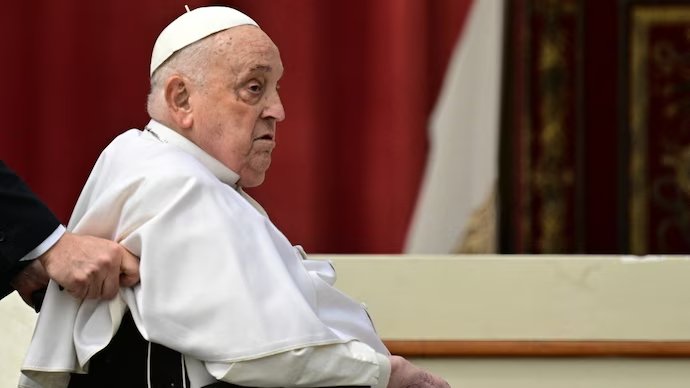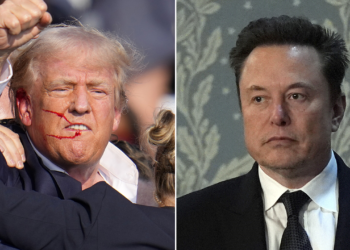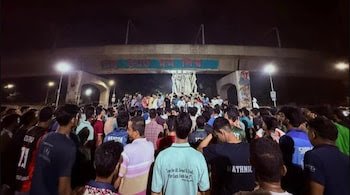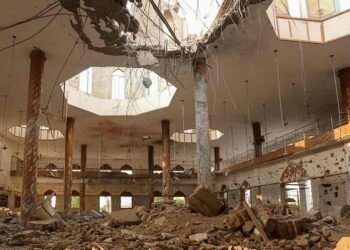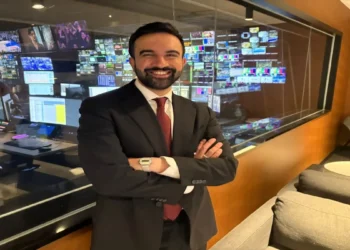Pope Francis passed away on Monday at the age of 88, just a day after his much anticipated appearance at Saint Peter’s Square on Easter Sunday, the Vatican announced in a statement.
“Dearest brothers and sisters, it is with deep sorrow that I must announce the death of our Holy Father Francis,” said Cardinal Kevin Farrell in the statement published by the Vatican on its Telegram channel.
Francis passed away only a day after he thrilled the crowds of worshippers at the Vatican on Easter Sunday with an appearance on the balcony of Saint Peter’s Basilica, even while still recovering from a serious illness.
He was hospitalized for 38 days due to double pneumonia, before being discharged on March 23.
If the media reports are anything to go by, there are four likely contenders to replace Pope Francis.
Cardinal Peter Erdo: Erdo embodies the more traditional aspect of the Church. He holds extremely strong conservative beliefs regarding matters such as remarriage and divorce, which he has consistently opposed. The 72-year-old is a past president of the Council of Bishops Conferences in Europe. The Independent reports that Pedro has likened the process of accepting refugees to human trafficking.
Cardinal Pietro Parolin: The next Pope will probably be Cardinal Pietro Parolin, as he is the senior-most cardinal in the electing conclave and has served as the Vatican’s Secretary of State since 2013. In his recent interview with the Italian paper L’Eco di Bergamo, Parolin shared insights on various topics. He is regarded as one of the most desired individuals in the church, as stated in the Independent article.
Cardinal Matteo Zuppi: He is considered one of the closest associates of Pope Francis and has participated in numerous international trips since his elevation to Cardinal in 2019. He encountered Ukraine’s President Volodymyr Zelensky on a peace mission and traveled to the US to meet with then-president Joe Biden. Zuppi has been supportive of the LGBTQ community.
Cardinal Raymond Leo Burke: Burke has openly disagreed with Pope Francis on topics such as divorce and remarriage. He described the church’s stance on artificial contraception, civil marriages, and gay individuals as “objectionable,” according to the Independent.
Process of Selection of A New Pope
Upon the passing of a pope, approximately three weeks later, the College of Cardinals will gather in the Sistine Chapel to conduct a conclave in a deeply confidential manner, following the tradition that has persisted for 700 years.
It is important to mention that the candidates for pope do not explicitly campaign for the role. Instead, those who observe the Vatican typically consider cardinals qualified to assume the role of a pope.
After a pope’s death, or in rare situations of resignation like Pope Benedict XVI’s, the Vatican holds a papal conclave, where the College of Cardinals assembles to select the next leader of the Church.
As of 22 January 2025, the conclave’s regulations indicated that there are 138 electors among the 252 cardinals. Participation in the secret ballot in the Sistine Chapel is restricted to individuals who are under 80 years old.
Only cardinals who are younger than 80 can vote. Approximately 120 individuals will cast their votes privately for their preferred candidate, inscribing their name on a ballot and depositing it in a chalice located on the altar.
It is important to mention that the individuals vying for the position of a pope do not publicly seek the role. Instead, observers of the Vatican typically consider cardinals to be qualified to assume the role of pope.
After the passing of a pope, or in uncommon instances of resignation like that of Pope Benedict XVI, the Vatican organizes a papal conclave where the College of Cardinals gathers to choose the next leader of the Church.
After a pope is selected, a delegate from the College of Cardinals proclaims the Latin declaration Habemus papam, which translates to “We have a pope,” from the central balcony of St. Peter’s Basilica, addressing the crowd of thousands below.


